More than potatoes? Irish food.
- rosemary
- Nov 15, 2023
- 5 min read
“I would make the argument, not that it is ‘meh’ but that there isn’t much of it. We do not have a sophisticated cuisine – we just don’t." Fionn Davenport - Travel writer

I have never been to Ireland, so have no first hand experience of Irish food. And now that I think about it you don't see many Irish restaurants do you, in spite of the fact that the Irish are everywhere? And I don't think there are many Irish cookbooks either. Like the Italians and the Jews, and the other inhabitants of the British Isles, they have spread all over the world, for various different reasons. In the case of the Irish I guess it was mostly because of the experience of the potato famine in the 1840s, but they continue to travel to the far corners of the world. At times there has been grievous conflict or poverty which always pushes people to find a better future somewhere else. The countries of the world that have populations that are fundamentally immigrant, always have large Irish populations. Well, no longer Irish of course, but still celebrating Irishness. Foodwise though, their influence is mostly seen in Irish pubs where you can consume Guinness, Baileys, and Irish whiskey and have a thoroughly good time.
And most of us with British ancestry most likely have somebody Irish tucked away there. I know that David and I do - me the poor Catholic Irish - David the Anglo-Irish landed gentry. And not very far back either just two generations for David and a few more for me. Two different worlds and so I'm sure they had two quite different diets.
These days there are celebrated Irish chefs - there are apparently 18 Michelin starred restaurants in Ireland - some of whom play with those old basic Irish foods, as well as embracing the foods of the world. Australia's Colin Fassnidge is an example of this. The produce is exceptional I believe, because the temperate - some would say wet - climate produces lush pastures for the growing of grains and the raising of animals. And all surrounded by a bounteous sea - although one wonders whether over fishing has affected Ireland too. So yes,I'm sure if you holidayed in Ireland today you would eat well. Would you only be offered those traditional dishes in their original form, traditional dishes with modern twists, or international food - for want of a better term? Probably all three is my guess.
We all think of potatoes when we think of Irish food - and of course they are crucial and I will come to them. However, obviously, the Irish did not eat potatoes before the end of the 16th century. They were unknown. And according to Colin Fassnidge, after the potato famine, well during it really, they turned to the sea for sustenance - seaweed as well as fish and shellfish. If you want to know a really detailed history of what the Irish ate prior to potatoes, then go to Wikipedia which starts in 8000BC in the Mesolithic period - just to give you an idea of the detail. In brief however, prior to the potato and with variations due to invasions by the Vikings and the English and a few others besides, the poor of Ireland subsisted mostly on bread and milk and the products of the milk, with a little meat. The bread was based on either wheat, oats and barley, which were sometimes served as porridge. The Tudors who invaded and began all the troubles that continue to this day, instituted mass growing of grains and exported the beef which had been more commonly available before then. Like most of the world of the time - even today I suppose, but with more food options for the poor - the diets of the rich and the poor were very different. It's the food of the poor however, that we know today as Irish food. Herewith a few - some of which you will know, some perhaps not. I suppose it's just a list, and many of these dishes we know, but not all.
Well you can't get more Irish than Irish stew can you? It is indeed a very simple stew - we used to eat it a lot when I was a child, but it's so classic that Robert Carrier included it not only in his Great Dishes of the World, but also in his Great New Dishes of the World - in his very short Classics section. I made his version fairly recently and it is indeed much tastier than you would think, amazingly delicious - a five ingredient dish in fact. The carrots however, which almost everyone adds, are not traditional according to Theodora Fitzgibbon in her very authentic A Taste of Ireland.
"The pure flavour is spoilt if carrots, turnips or pearl barley are added or if it is too liquid. A good Irish stew should be thick and creamy, not swimming in juice like soup." Theodora Fitzgibbon
A different kind of stew is the Dublin coddle which is made from sausages, bacon and potatoes. The version shown here has pearl barley too. Then there is the Guinness and beef stew, which may well be a more recent dish because of the Guinness. I think they may have used porter - an earlier dark beer instead prior to Guinness. And finally in the meat section there is boiled bacon and cabbage - another of those really simple things that actually tastes wonderful. Alas we don't get the right kind of bacon here, although Theodora Fitzgibbon seems to think it should really be corned beef.
So what about those potatoes? Well apart from just being eaten as potatoes there are three main Irish specialities for potatoes - Colcannon which is mashed potato and cabbage - although I believe it really should be kale, which would please the modern world. According to Theodora Fitzgibbon colcannon is traditionally served at Halloween with a gold ring, a sixpence, a thimble and a button placed in the mix. If you get the ring you will be married within the year, the sixpence denotes wealth and a thimble for a spinster, a button for a bachelor. Potato farls, which are pancake like slices from a potato flatbread, and Boxty which are potato pancakes made from a mixture of grated and mashed potato. For a potato freak like me these are all heaven.
Bread and cake? Irish soda bread is famous, and very similar to Damper of course, but made with buttermilk. Then there is Barmbrack which is a kind of fruit bread also traditionally served at Halloween with that gold ring placed inside.

I am ignoring the seafood of which there is plenty because there does not seem to be a particular way of cooking that is peculiarly Irish. Suffice to say that their seafood is excellent. But finally an outlier - Yellowman which is a honeycomb kind of sweet that must be pretty hard because it's often shown with a hammer lying alongside - as here.
Theodora Fitzgibbon had more things in her book, and I guess the few Irish cookbooks that exist do too, but really there does not seem to be a lot. Perhaps what is most surprising is that the landed gentry and the aristocracy do not appear to have come up with anything that is specifically Irish. Maybe this is because they were fundamentally intruders, invaders, who never relinquished their English origins and protestant religion, even though many of them have been there for over five hundred years. Maybe like language, cuisine comes from the bottom up and not the other way around. Maybe the food invented and refined for the aristocratic classes is too fiddly and 'special' to become a national dish.
Maybe the advantage of the simplicity of the Irish cuisine if one can call it a cuisine is that it is ripe for experimentation in the modern age. Yotam Ottolenghi has certainly had a go with three of them: Irish stew with giant couscous and preserved lemon; Curried potato farls with bacon and apple mustard and Hawaij-spiced barmbrack. I wonder. To mess with or not to mess with?
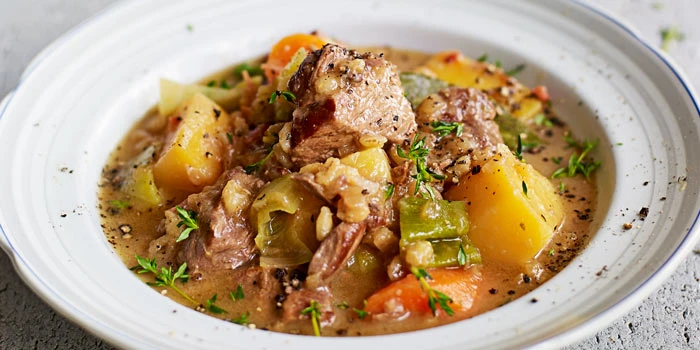


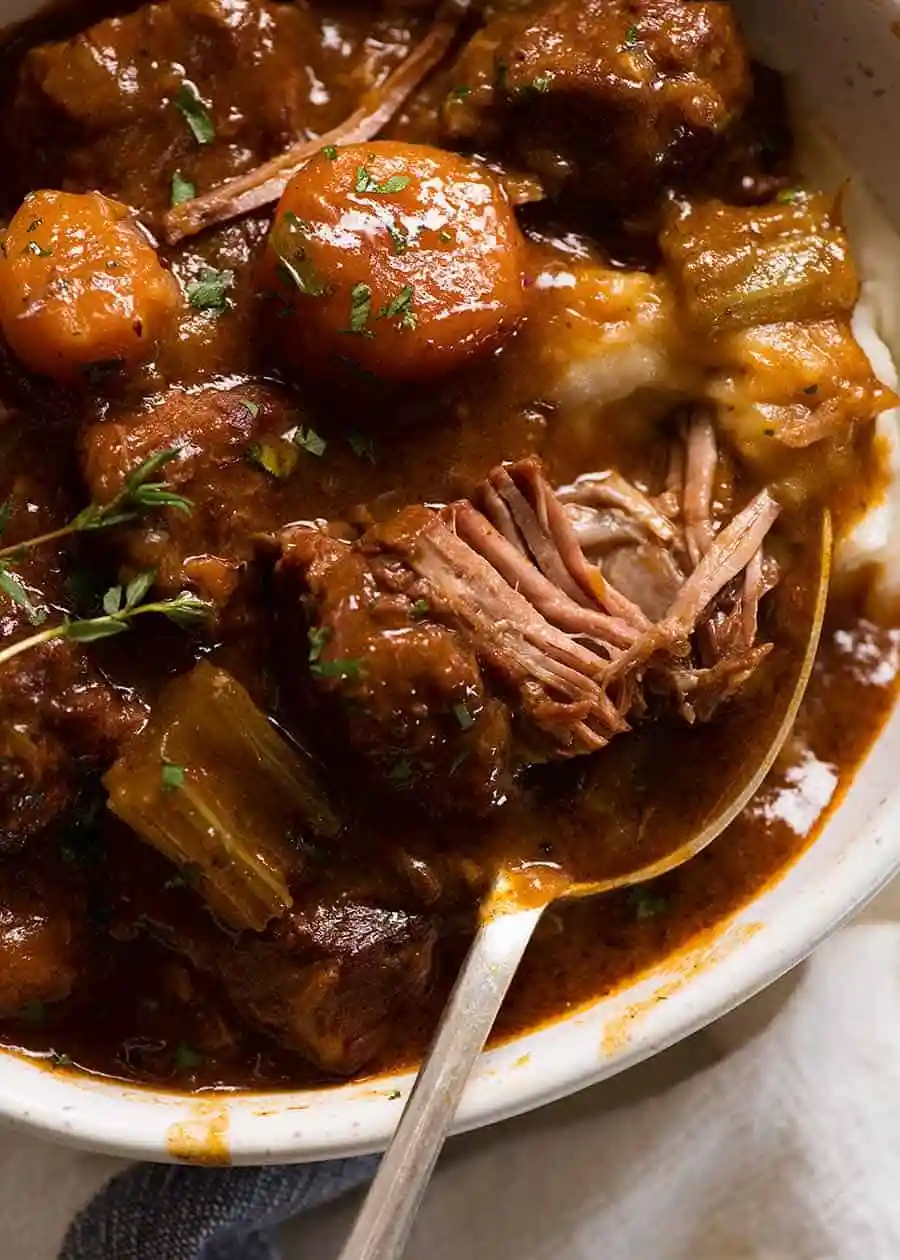


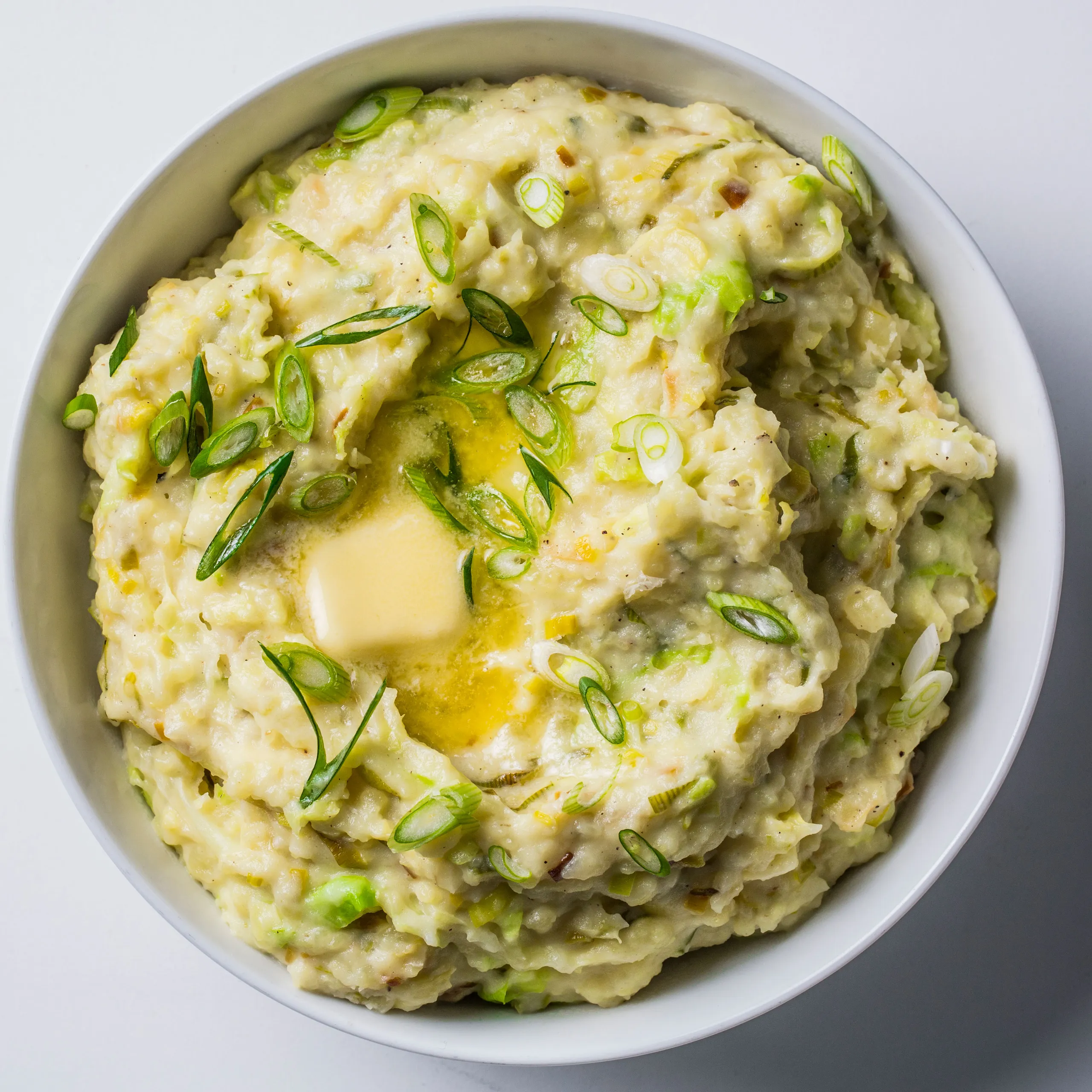




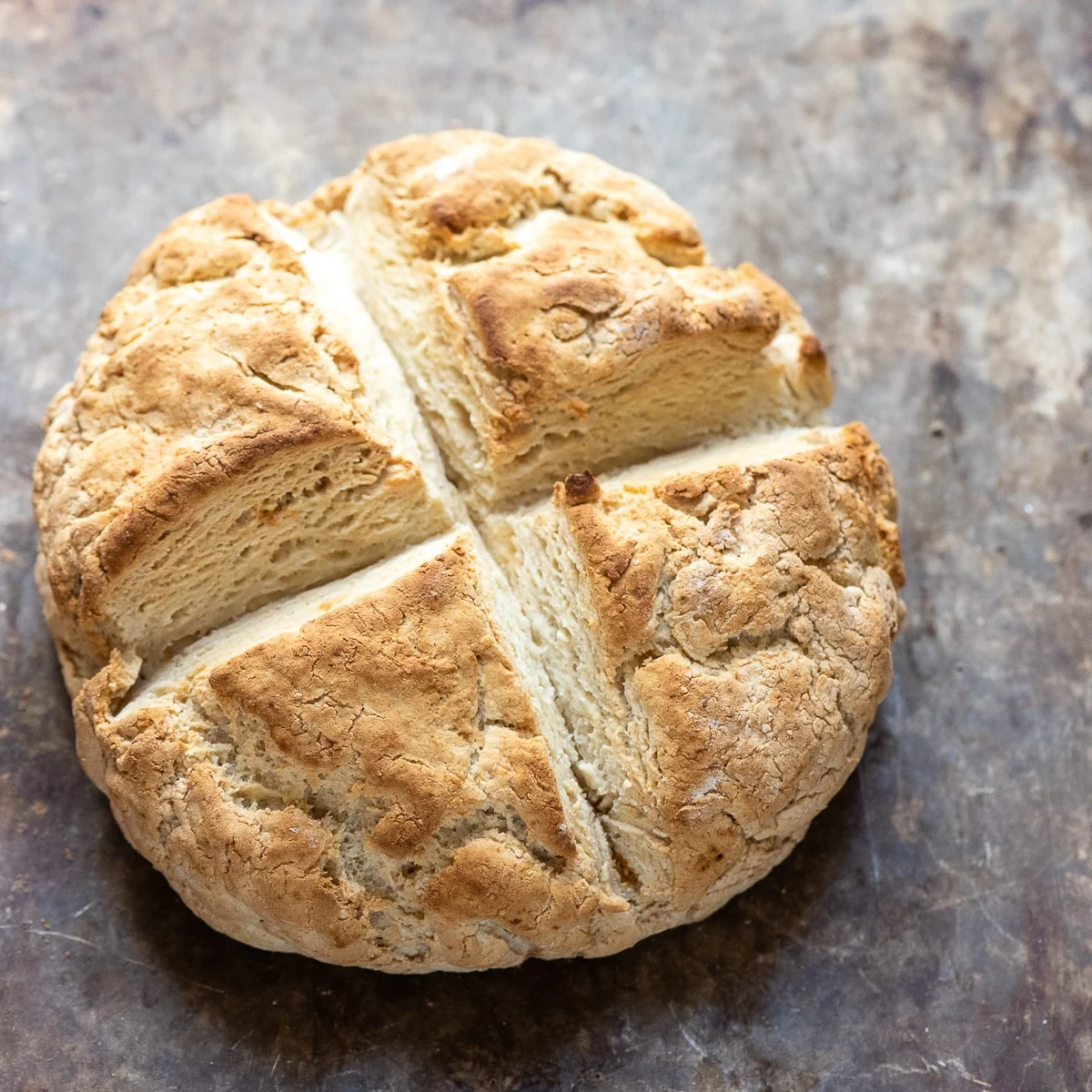


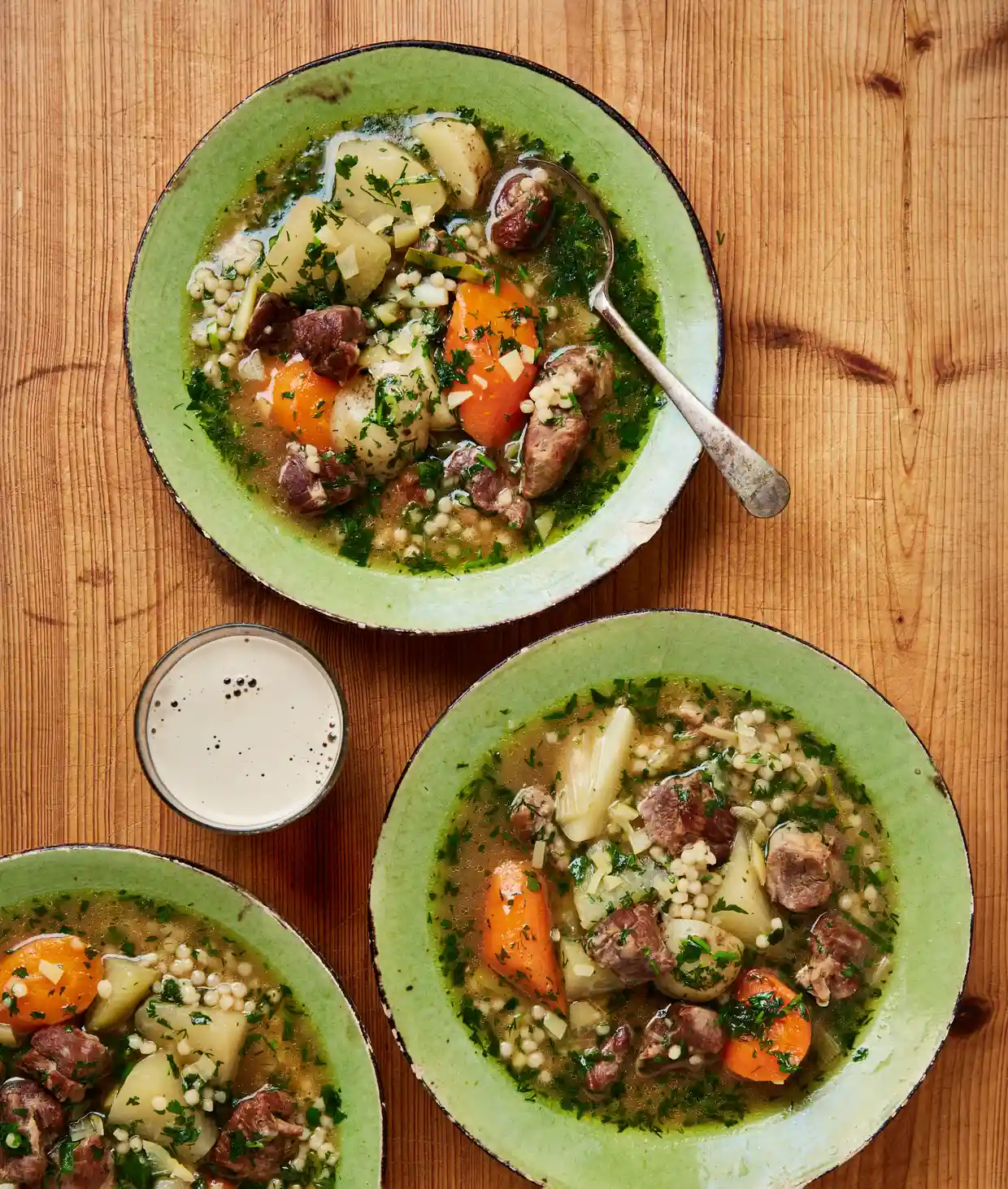
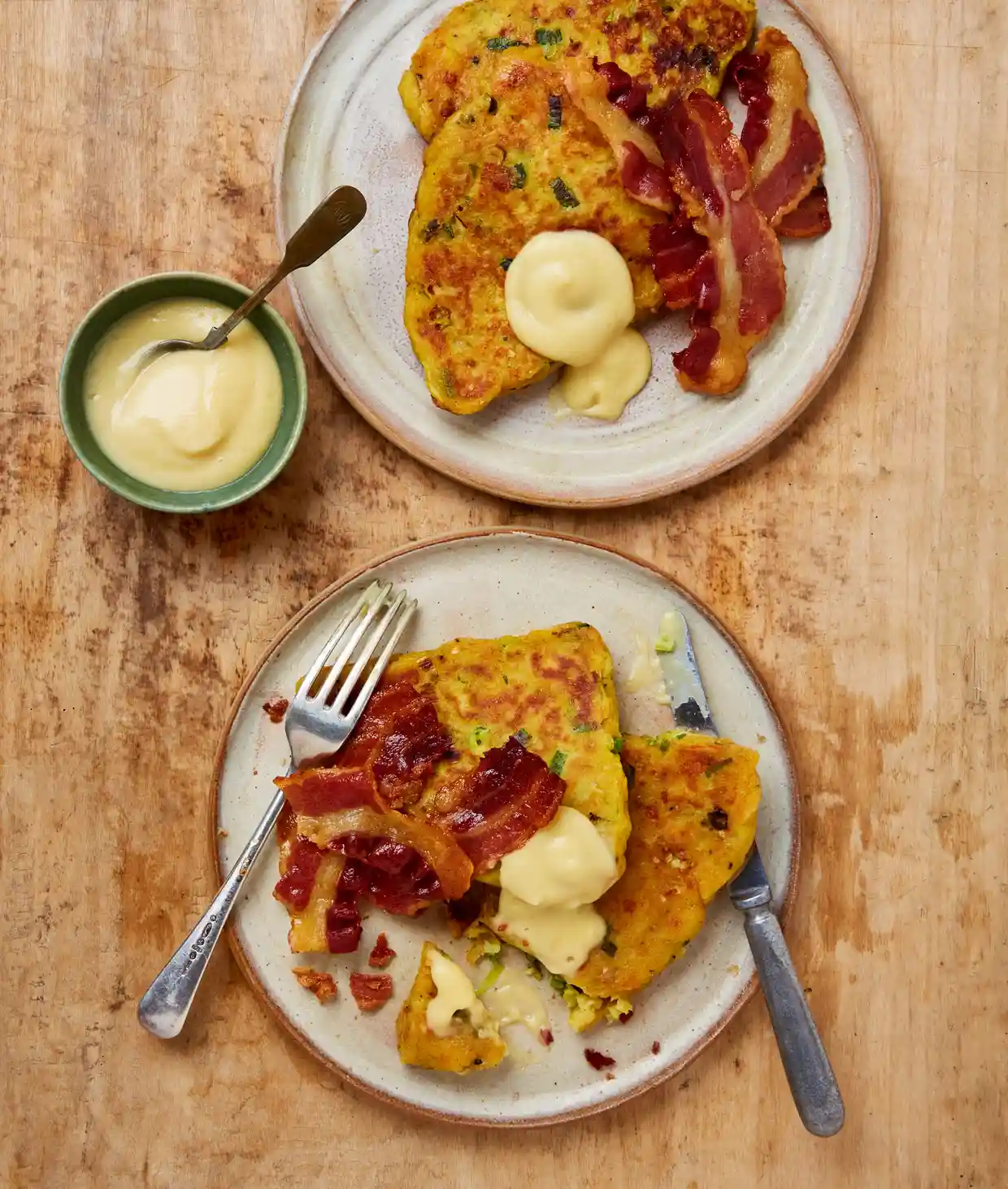
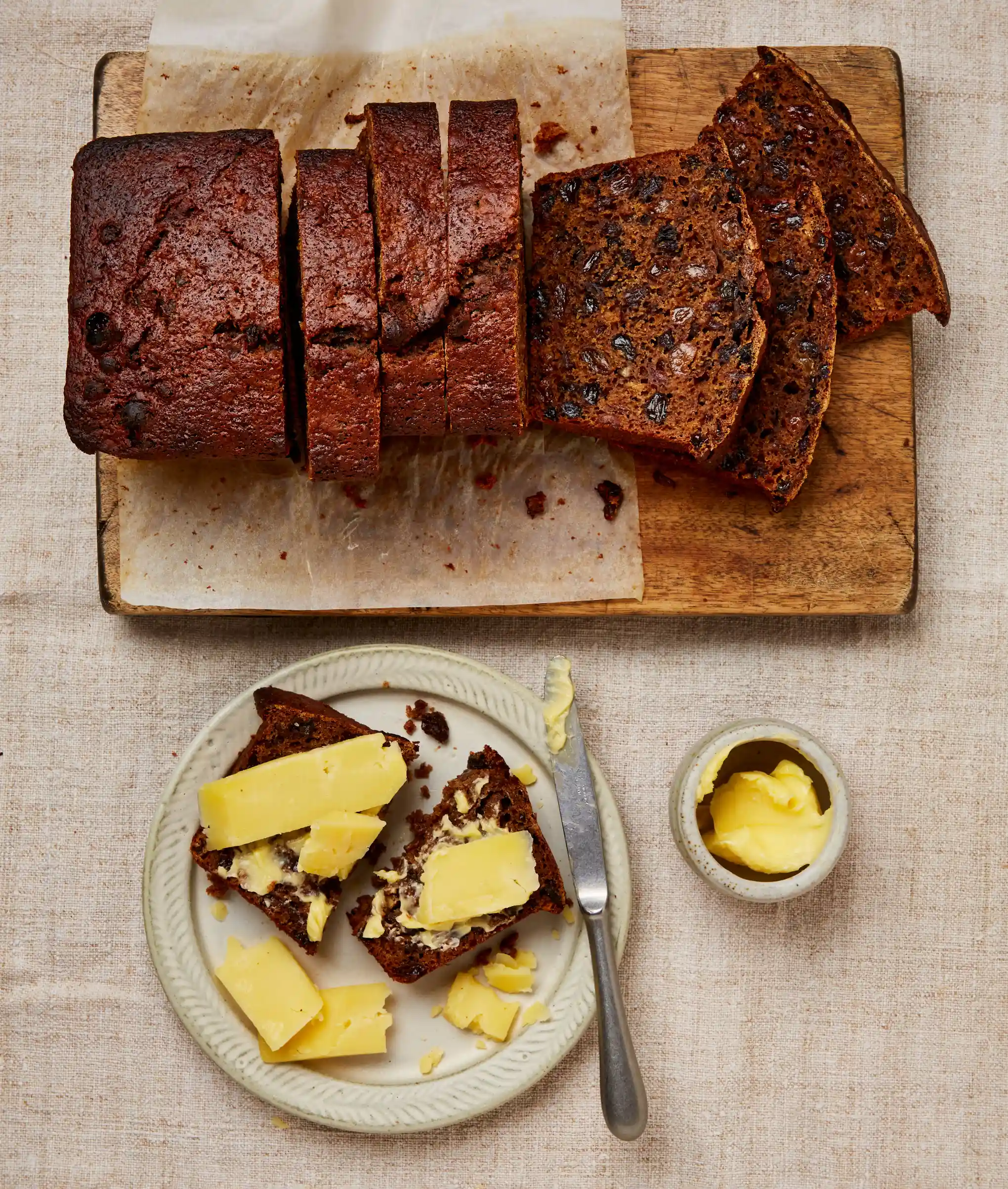



Comments